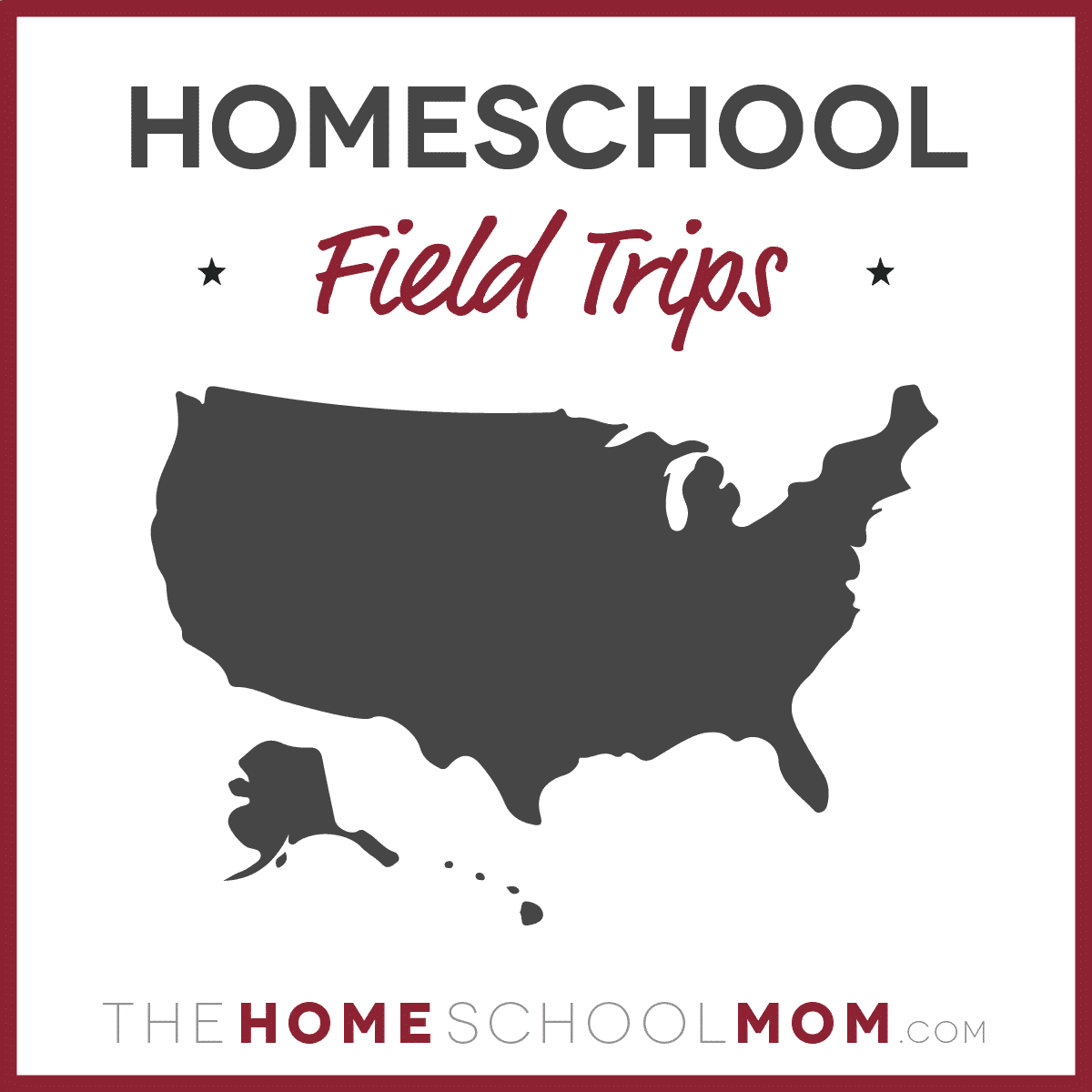
Field trips are a great way to reboot a bad homeschooling week, get out of the house when everyone has cabin fever, and learn about your local area. Before heading out, check out Jeanne's tips for improving homeschool field trips.

Read about some of the ways field trips can enhance learning, get everyone back into a learning groove, help late-readers, and more.

It's the point in the winter most homeschoolers have the winter blahs. You know, that "sick of being inside" "tired of the daily homeschool grind" sentiment that leads you and the kids to wish you could be doing anything other than school. Often by this point in the season, the art supplies have been well used, the indoor games have been played, and everyone is in need of a little excitement. Sometimes a dose of creativity and fun can help bridge the gap until Spring breathes a breath of fresh air into homeschooling life. Never fear, there are plenty of .

Whether you school year 'round or take a break during the summer months, June, July, and August are the ideal time to jazz up your homeschooling with a bit of extra fun. Warm weather, sunshine, and summer breaks from regular-year activities all make the middle of the year perfect for a little excitement! Camps and swimming are pretty par-for-the-course for many families, but there are just so many things that homeschoolers can do to get the most out of summer and make some wonderful memories. Here are 20 fun ideas to get you started.
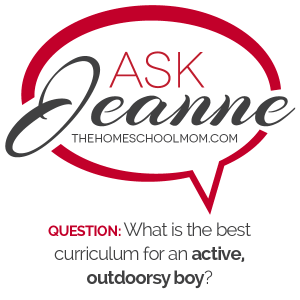
We just started homeschooling about a month ago. Our son is in first grade. We purchased the curriculum (here she named a specific well-known Christian curriculum), but it's not going as well as I had hoped. My son really doesn't like the structure of the program. He's a six-year-old boy who loves to be outside. Any encouragement, advice, resources, wisdom, or thoughts would be appreciated! Thanks so much!
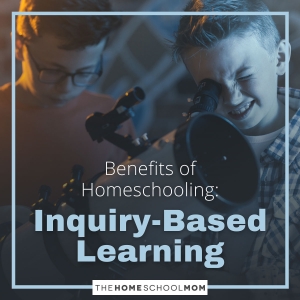
I recently wrote about how homeschooling parents can use a dialogue-based approach to education, which I see as a big potential benefit to home education. While many public schools have been forced into test-prep mania that defines success very narrowly, homeschoolers can use this educational approach to develop critical thinking and evaluate learning. Scientific American has a recent story that reflects my thoughts on the unfortunate increased emphasis on standardized testing in public education.

In the midst of back-to-school sales and school orientations, many homeschoolers are now planning something different for September—a Not Back To School event. Even homeschoolers who don’t organize academic learning by a traditional school calendar enjoy this type gathering, which celebrates the distinctiveness of homeschooling.

Are you looking for something to do outside with the kids during this period of social distancing? Taking them to a cemetery to document graves respects social distancing while providing kids with an opportunity to participate in a "treasure" hunt, use photography skills, enjoy nature, and learn about history.
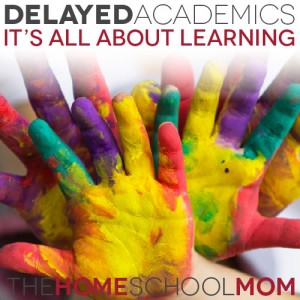
Many experienced homeschoolers have long valued the ability to delay formal academics to create a more holistic early childhood education for their young children, with the understanding that this creates a rich foundation for later academic and life success. Today, parents new to homeschooling are embarking on homeschooling at a time when public schools are emphasizing early formal academics and implementing standardized testing of very young children, despite lack of evidence that these practices enhance educational outcomes for the children. As David Elkind (author of The Hurried Child and The Power of Play: Learning What Comes Naturally) writes in "Much Too .
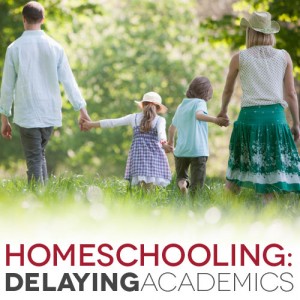
Schools are pushing standardized testing and formal academics earlier than ever, with today's kindergartners and preschoolers asked to master skills and content that used to be learned in first and second grades. Stories like this one from New York and this one from Chicago are popping up all over the country -- frequent standardized testing of five year olds (and the accompanying test prep) is becoming the norm in public education. Formal reading, writing, and arithmetic teaching are displacing the time honored traditions of kindergarten -- play, story time, learning to share, and enrichment activities that lead to numeracy and .
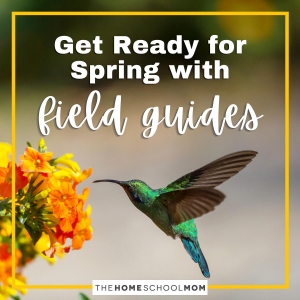
A library of field guides is an important resource for homeschooling families, and with spring just around the corner, it's a great time to make sure you have what you need on hand to help with identification of birds, trees, insects, spiders, snakes, turtles, frogs, toads, and wildflowers. Here are some tips for making sure your field guides are frequently-used.

Here’s an insider tip for homeschool field trips: Homeschool Days! Homeschool Days may offer any or all of the following: discounted individual tickets, discounts for homeschool groups or co-ops, special activities, and/or a full schedule of programming to enhance the experience of visiting them.
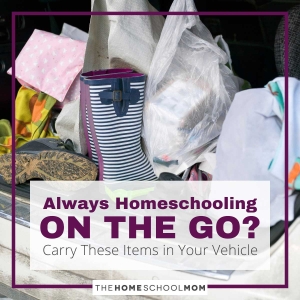
Many of us homeschoolers are automobile-dependent. Living in rural or suburban areas and in some small and medium size towns and cities, we find that our communities aren't "walkable," and there is no public transportation to speak of. There is certainly no school bus serving our family. Since our kids aren't in the "big box of school" we have to drive to many of the activities and classes our kids participate in. With three kids in a wide age range and with a diversity of interests, over the years I have found myself constantly traveling from one "homeschool thing" to .

A great activity for your homechool group or co-op is a library scavenger hunt. Working with your librarian, plan a gathering for homeschoolers that includes sending the kids throughout the library to find resources, so they'll get to know the library better. If the scavenger hunt is promoted by the library, you might even find some more homeschooling friends in your community if they show up at the scavenger hunt. You can organize the kids into pairs or teams (and have the youngest kids hunt with an adult), and send them out with a list of things for each child .
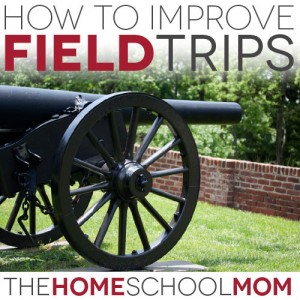
Everybody knows homeschoolers go on a lot of field trips. We start them young with trips to the fire department and the water treatment plant. We go to historic farms, art museums, animal shelters, state and national parks, corn mazes, and caverns. In my state, Virginia, you can study practically all of American history through field trips: Native American sites, Jamestown, Williamsburg, historic grist mills, Frontier Culture Museum, Mount Vernon, Monticello, Montpelier, antebellum plantations, Civil War battlefields and museums, memorials of World War I and II, Civil Rights sites, a Vietnam War museum, and more.

Everyone has a comment on the increasing popularity of homeschooling. When I talk to people about homeschooling, they frequently mention the availability of "so much curriculum these days," as if that is the single most important factor in being able to homeschool. Non-homeschoolers, prospective homeschoolers, and new homeschoolers seem surprised that many homeschoolers use learning materials that are not, strictly speaking, part of a homeschool curriculum. There are many reasons why people use other learning resources instead of curriculum.
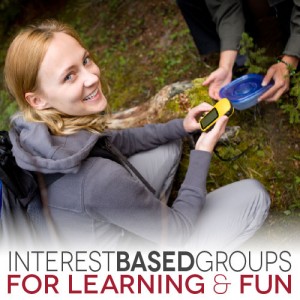
In my family, interest-based groups have been an important part of homeschooling life. We formed a number of these groups over the years. Some, like a history club made up of eager parents and not-so-eager young children, barely lasted long enough for a few meetings. Others have lasted ten years. The most successful has been our boy’s science club. It was started by five families with nine boys between the ages of seven and eleven. When we began it was highly structured. We met regularly at each other’s homes. Parents took turns planning a project or experiment, got the materials, .

The reality is that when you homeschool, it can easily seem like an endless treadmill. Often there aren’t the same demarcations in the school year that public school students experience, as many homeschoolers follow non-traditional schedules and do academics year-round. Moving from one "grade" to another becomes an issue of "in which subject?" and summer "break" can simply be a matter of shifting academics from traditional book work to more experiential learning. Homeschooling, like parenting, never ends while the kids are still at home.
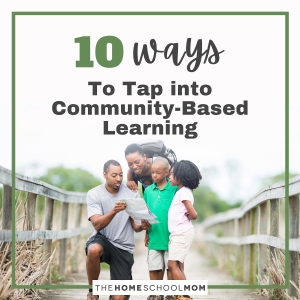
Now more than ever, homeschoolers are looking to emerge from their homes and engage with the community around them. Whether you are new to an area, a temporary resident, or a lifelong inhabitant, learning about the place you live can lead to all sorts of new opportunities and adventures in learning. Here are 10 simple ways to start using your community to enliven your life and learning.

Visiting with family and friends is the highlight of the holidays for many homeschoolers. Unfortunately, before the festivities and merry-making can begin comes a part of the holidays that most families dread - the process of "getting there"! These ideas for filling hours in the car will have your whole family enjoying your travel time.